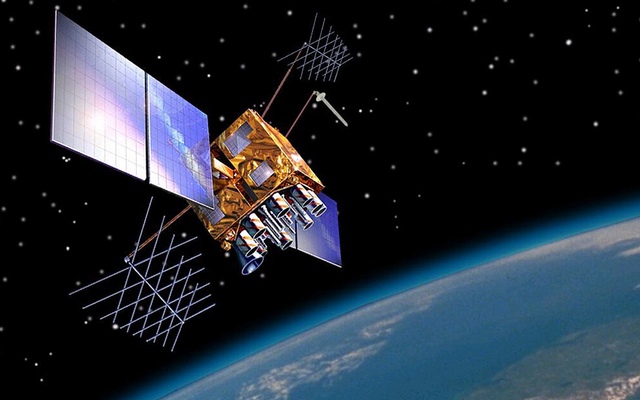Captain Hook’s nightmare. Image: Pixabay
Daylight saving time goes into effect today, so enjoy your extra cushy hour. This biannual changing of the clocks is a reminder that time can be a slippery metric, subject to subjective cultural traditions aimed at maximizing sunlight, among other things.And yet, in contrast, time is also something "we can measure more accurate than anything else on Earth," according to Dr. John Janis, a senior systems engineer at Harris Corporation.Janis is an expert on positioning, navigation, and timing, and helps to coordinate the sophisticated GPS satellites we use every day to get around. But while most of us think of GPS strictly in terms of spatial dimensions—point A to point B—Janis says that the satellite constellation's greatest superpower is actually temporal."Navigation all through history has been dependent on telling your time more than anything else," Janis told me over the phone. "Right now, the best clocks we use for space operations are accurate to about a tenth of a nanosecond over a day, which equates to about a second over ten million years."These atomic clocks on-board GPS satellites are able to achieve this kind of accuracy by using the oscillations of electrons in cesium or rubidium atoms in the place of, say, the pendulum swings of a grandfather clock."The second no longer is something that we try to measure," Janis explained. "It actually comes to us directly from what an atom does. It's exactly 9,192,631,770 cycles of that transition frequency. That's important because it allows us to have a universal standard from which everything else is measured." This incredibly precise method of timekeeping has all sorts of applications that most people would never think are related to GPS. Power plants use the satellite network to schedule energy outflows that won't conflict with the larger power grid. Cell phone networks use it to ensure that communications towers are synced up to the microsecond level. Wall Street traders use it to timestamp transactions to the millisecond, enabling high frequency trading."In terms of infrastructure, it's the timing that's critical," Janis said. "In terms of what people see, it's the positioning aspect. But the majority of the economic impact of GPS is in the timing. If our financial markets, power grids, and cell phone networks all went down, that would be a pretty dark day."In addition to preventing such a dark day from happening, timekeeping experts are working on ways to deliver even more accurate clocks in the future. "Over the last five years, there have been some new and exciting developments in clock technology," Janis said.
This incredibly precise method of timekeeping has all sorts of applications that most people would never think are related to GPS. Power plants use the satellite network to schedule energy outflows that won't conflict with the larger power grid. Cell phone networks use it to ensure that communications towers are synced up to the microsecond level. Wall Street traders use it to timestamp transactions to the millisecond, enabling high frequency trading."In terms of infrastructure, it's the timing that's critical," Janis said. "In terms of what people see, it's the positioning aspect. But the majority of the economic impact of GPS is in the timing. If our financial markets, power grids, and cell phone networks all went down, that would be a pretty dark day."In addition to preventing such a dark day from happening, timekeeping experts are working on ways to deliver even more accurate clocks in the future. "Over the last five years, there have been some new and exciting developments in clock technology," Janis said.
Advertisement
Advertisement
"There are some techniques in the lab now that result in losses of only a second every five billion years; a second for the entire history of the Earth," he continued. "That's the equivalent of measuring the distance from the Earth to the Sun to the size of a bacteria."While it will take a while for these clocks to be deployed on satellites, it's only a matter of, well, time. Given the unexpected ways in which GPS timekeeping has underpinned the day-to-day rhythm of modern life, it will be interesting to see how these increasingly precise instruments affect technology in the future."When GPS was first developed and deployed it was done as a critical military asset," Janis explained. "No one in their wildest imaginations could have thought of the way in which it has insinuated itself into every aspect of our current lives.""Everyone has access to the signal," he said, "There's no way you can limit human ingenuity, and the extent to which we can leverage that to do things no one could have thought of in the past.""The second no longer is something that we try to measure."
